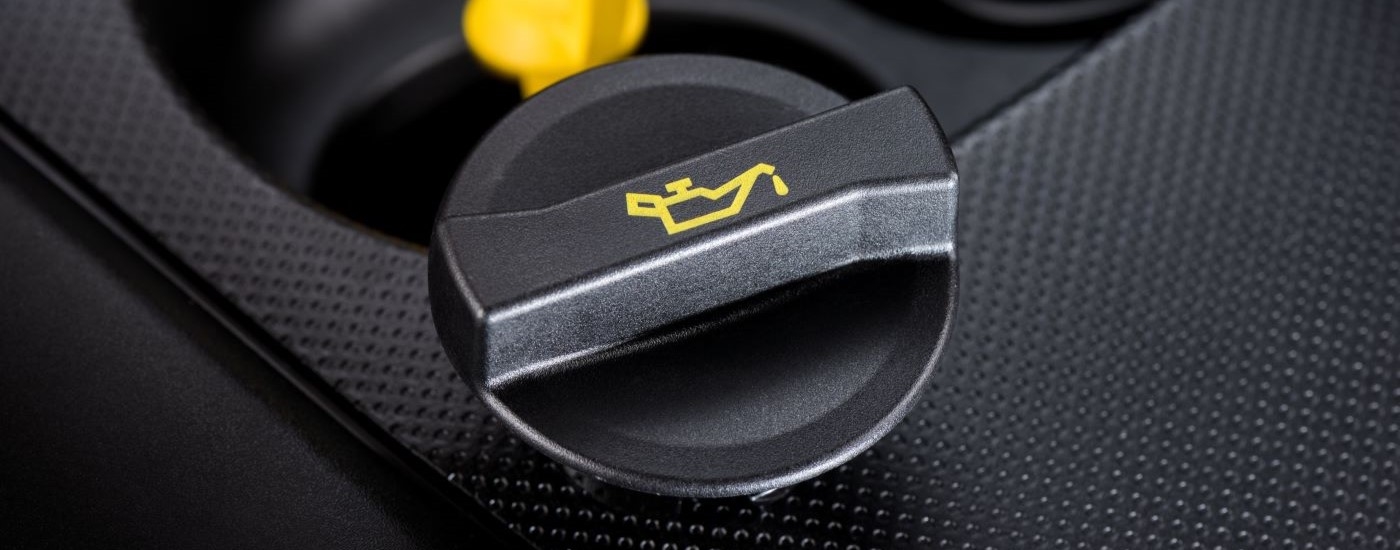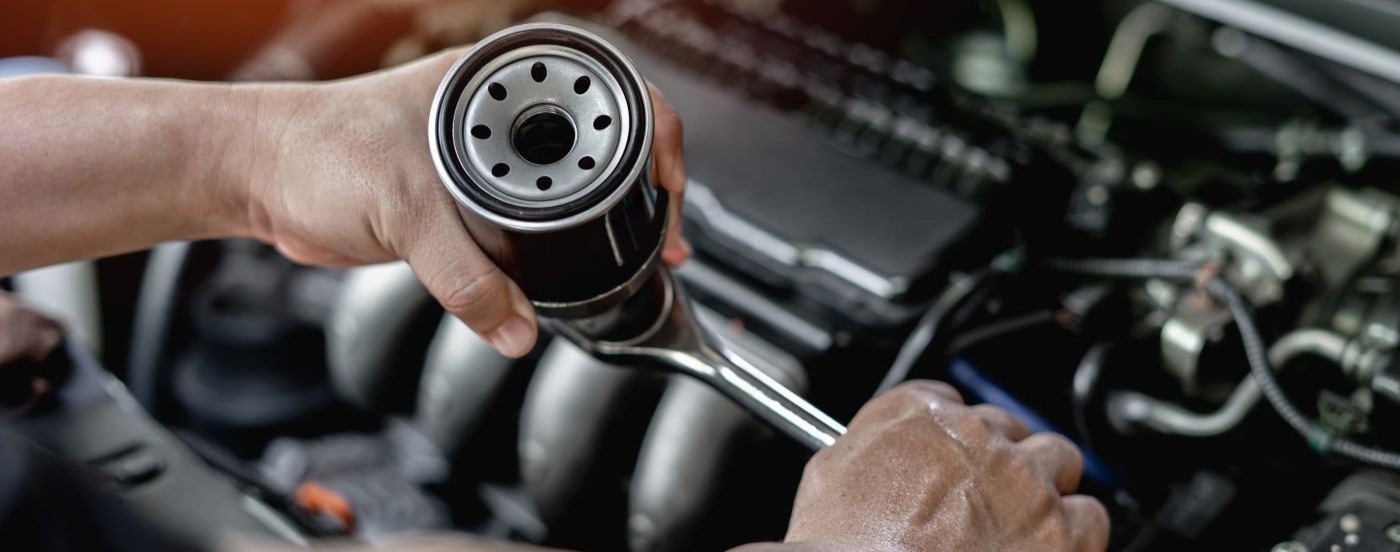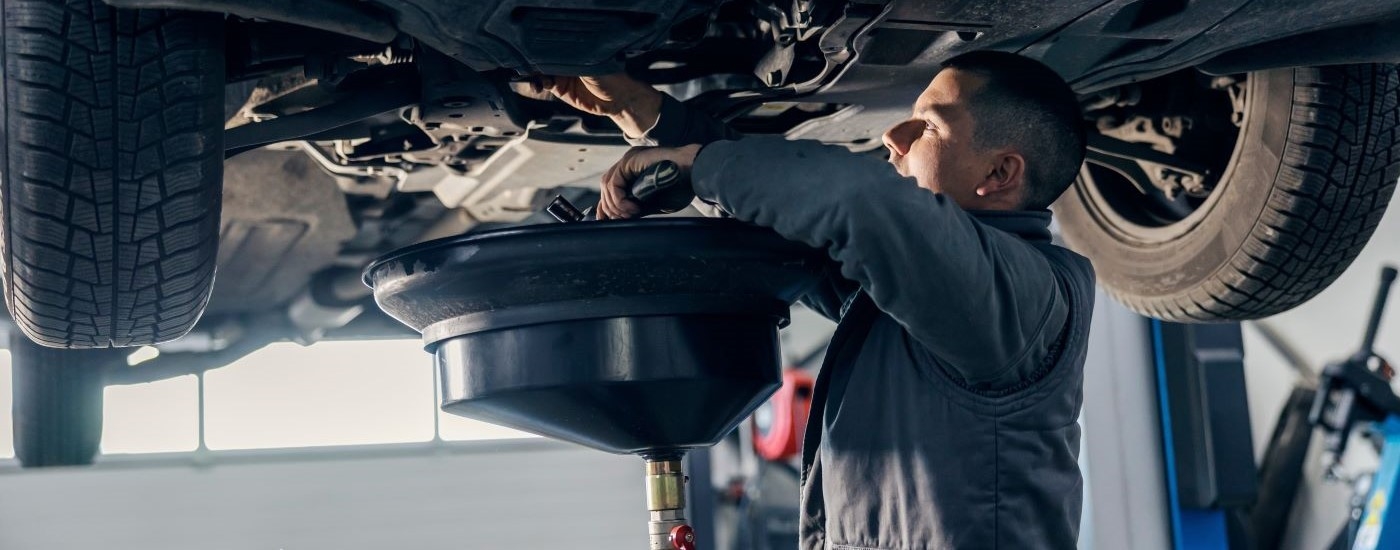Oil Change Near Me

Getting your vehicle's oil and oil filter changed regularly should be a major part of your regular service plan. Nevertheless, many drivers neglect this important task and end up taking years off of the life of the engine and transmission on their vehicles. In addition, many don't understand the differences in the types of oil, as well as how important engine oil is for the performance of their car, truck, or SUV. At Ruge's Subaru, we are the place to go if you're wondering, "Can I get an oil change near me?"
Our service team can help you with all your maintenance needs, from routine oil changes to major repairs. When you come in for an oil change, our technicians will also check out other parts of your vehicle and let you know if there is something else that needs attention. Believe it or not, one of the side benefits of getting routine oil changes is the ability to have a trained technician look at your vehicle and let you know if you may have other maintenance needs.
Giving you top-notch service is what our dealership is all about. This is shown by the fact that we make sure to use the right oil for your vehicle and will let you know how often you need to bring your car, truck, or SUV in for service, including oil changes. This is why everyone from around the Hudson Valley knows to bring their vehicle to us when it is in need of service.
Oil Change Schedule Service About Us
What Does Oil Do, and Why Is Regular Maintenance Important?
Your vehicle's gas or diesel engine has many working parts. Fuel injectors spray gas or diesel fuel into a chamber that houses a cylinder. In gas engines, a spark from a spark plug ignites the fuel, which is compressed inside the cylinder to create power. In diesel engines, there are no spark plugs, but the compression itself is what creates the energy to move your vehicle. This is then transmitted through the gears of your transmission via a drivetrain to move the wheels on your vehicle. All of these moving parts create a great deal of friction, which results in heat. As metal parts become heated, they can have minute filings come off, which have the potential to gum up the system.
The oil in your vehicle acts as both a lubricant and a cooling agent. The lubrication of the oil keeps all the different working parts moving smoothly, keeping all of the parts from meshing together. The oil also acts as a cooling agent, reducing the heat building up inside the engine. While your oil is flowing through your engine and transmission, it can pick up bits of debris from all of these moving parts. This debris gets deposited into the oil filter. However, over time, the filter loses its ability to collect more pieces of debris. It also can become clogged, slowing down the flow of oil over the engine and transmission parts.
At the same time, the heat in the engine causes the oil to break down, losing its viscosity. This is why motor oil looks almost clear with a slight brown tint, like maple syrup, when you pour it into your engine, but starts to turn black and sluggish like molasses over time. If you don't change this oil, you risk damaging the moving parts of your engine and transmission. At some point, your engine may seize up, with the pistons unable to turn and the transmission machine gears getting enmeshed with one another. When this happens, you may have to replace your vehicle's entire powertrain, which is one of the costliest repairs on a vehicle. To avoid this, you need to change the oil and oil filter at least as often as is recommended in your owner's manual.

What Types of Oil Do Modern Vehicles Use, and Why Does This Matter?
When it comes to changing oil, no two vehicles are exactly alike. Each automaker recommends a type of oil that is designed to work best with their vehicles, which is based on the design of the engine and transmission. Each has a different viscosity level, as well as slightly different chemical compositions.
In general, you are going to encounter three different types of motor oils. The one that you might be the most familiar with is traditional motor oil. This is derived primarily from crude oil and is only appropriate for use with older vehicles. This is the least expensive of the three types but needs to be changed more often than the other two types of motor oil. The other two types of motor oil contain at least some synthetic components like lubricants to improve performance. A semi-synthetic oil will have some traditional motor oil in its blend. These tend to mainly be used for trucks, especially those with diesel engines, as these semi-synthetic oil blends are better for vehicles carrying heavy loads over long distances.
The most common type today is synthetic motor oil. These provide the best lubrication for high-performance and highly efficient engines. As a result, more automakers recommend these blends for their vehicles. While they are more expensive than conventional and semi-synthetic motor oils, they last longer and provide better overall protection for your vehicle. While the specific synthetic oil may differ depending on your vehicle, the basic concept is the same for this type.

How Often Should You Be Getting Your Oil Changed, and How Do You Know It’s Time for One?
The short answer is that if you don't go for an oil change on a routine basis, your vehicle will be sure to let you know that one is overdue. This is because vehicles that are past due will not operate properly. They will be prone to backfiring and producing clouds of thick, black smoke from the exhaust. These vehicles will make loud engine noises, provide sluggish acceleration, and poor fuel economy. In addition, you may notice a foul, oily odor inside your passenger cabin. You should do whatever is possible to avoid this situation.
Depending on your vehicle's age and type, if you are driving a relatively new vehicle, you may need to change your oil once every 7,500 to 10,000 miles. This will probably appear in your owner's manual. If you drive fast or use your vehicle's brakes a great deal, then you should probably consider getting your oil changed more frequently. In addition, if you don't put a great deal of mileage on your car, then you may need to consider getting your oil changed based on time. If this is the case, you should get it done at least once every six months. In any event, you should never wait more than a year to get an oil change. If oil sits for more than one year in your vehicle's crankcase, you could cause problems.
One feature that is very good on newer models is an oil life meter. This will let you know how much longer you can go before getting your next oil change. When the meter approaches 0% oil life left, it will illuminate a little yellow warning light in the shape of an oil can. If you are driving an older model, it may not have this meter. Don't worry since you can always check the level and quality of the oil using your engine's dipstick.
Take an old rag, pull out the dipstick, wipe it off in the rag, and then put it back in, taking it out quickly. If the oil looks black or doesn't reach the marker on the dipstick, then you are due for an oil change. In any event, if you are driving an older vehicle, including one you bought used, you should consider getting the oil changed at least once every 5,000 miles or three months, regardless of the time period listed in your owner's manual. Older vehicles need more frequent oil changes, but doing this bit of routine maintenance will extend the life expectancy of your vehicle.

We’ll Help Keep Your Vehicle Running Like New
Keeping your vehicle in good working order shouldn't be difficult, but far too many drivers ignore their vehicles' need for routine maintenance. Having the tires rotated, the oil and oil filter changed, and the other fluid levels checked on a regular basis will go a long way to keeping your vehicle on the road and in proper working order. Not only will this extend the life of your vehicle. It will also provide you with peak performance from your vehicle, including delivering the best fuel economy possible from your car, truck, or SUV.
Our service department features a crack team of vehicle technicians who can help you with all of your automotive needs. While we are an official Subaru dealership, our team members have experience working on every make, model, and vehicle type. So, even if you don't drive a Subaru, our team can help you with everything you need, from tire rotations to major engine and transmission repairs. Come to Ruge's Subaru today, and let us provide you with an oil change and all of your other service needs for your vehicle!